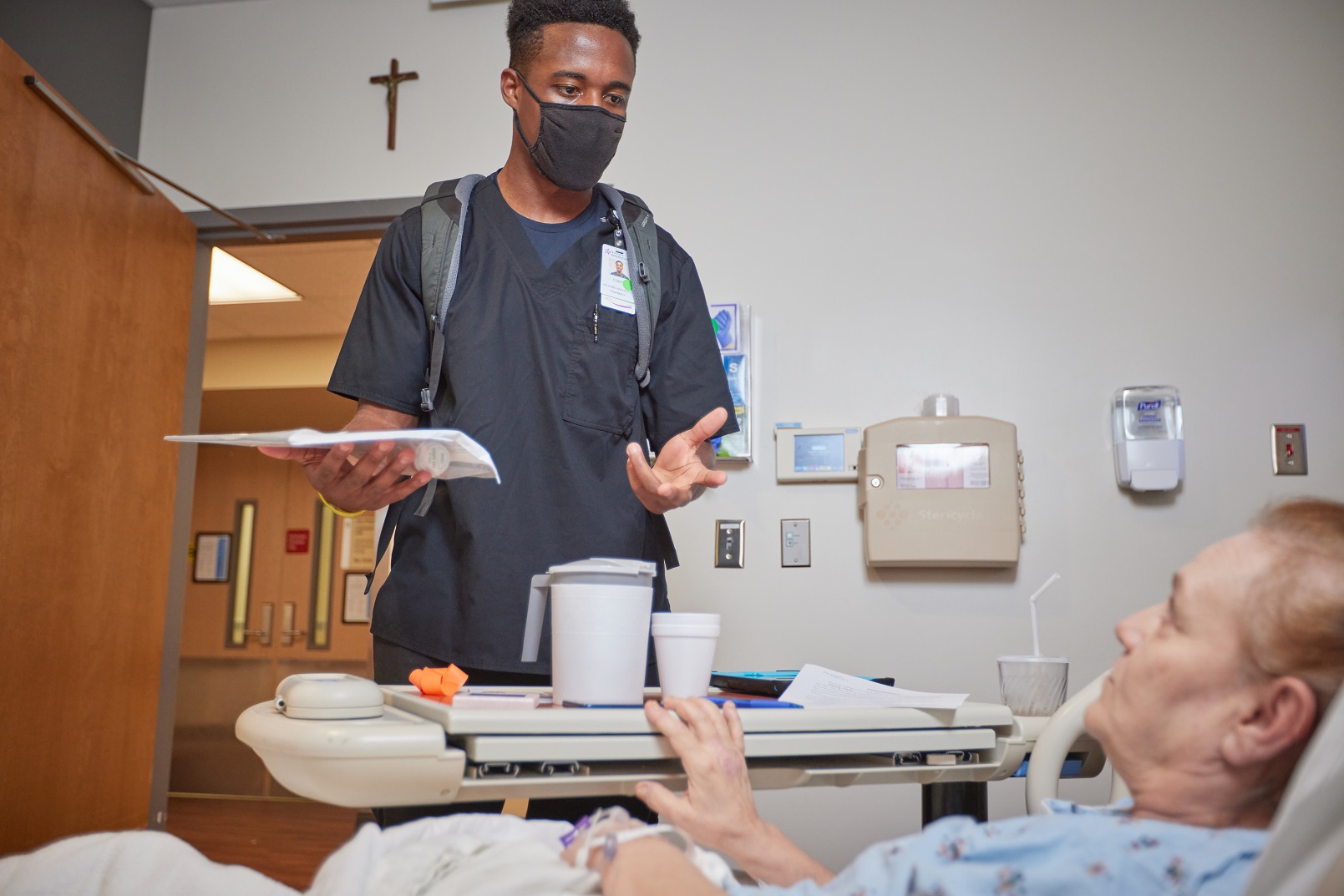Getting started with the 340B Program
340B savings can mean potentially millions of dollars in retail and specialty prescription reimbursements annually. Savings and revenue which, for some hospitals, literally make the difference between solvency and closure.
The first step in preparing your health system for enrollment in the 340B program is to ensure that you’re eligible to participate. If your hospital isn’t already registered, you might want to refer to the blog post Are you ready to enroll in the 340B program?
Benefits of a Meds To Beds Program: Overview
On a purely practical level, a well-managed bedside prescription delivery program can improve health system revenue.
On the human level, Meds To Beds is more than a tangible sign of your system’s care of, and for, the individuals & families you treat. It’s your first line of offense in ensuring patients follow prescription protocols after they’ve left your care — significantly decreasing the likelihood of readmission while, in the process, improving patient satisfaction and pharmacy revenues.
It’s a transitional care program which health systems fail to implement, as a rule, because of the costs of staffing and administrations. Costs which, in our experience, are more than offset by revenues. In one Mississippi health system alone, ProxsysRx filled over 18,000 discharge prescriptions in just 12 months — during which time, pharmacy revenues increased 125% and readmissions decreased 79%.
How a good Meds To Beds Program works
First, a hospital’s retail pharmacy staff must commit to partner with its case management teams, nurses and physicians to implement a cohesive medication treatment plan for patients transitioning from hospital to home. That commitment includes the pharmacy staff performing the work necessary to enhance a health system’s current efforts, so there’s never any added burden on the hospital’s providers, nurses and staff.
Next, when pharmacy staff deliver prescriptions bedside to patients, they should ensure that a pharmacist is available to carefully review prescription protocols, and any issues that could compromise patient willingness (or ability) to maintain prescription compliance, post-discharge.
Once patients accept their prescriptions and understand how to maintain compliance, your meds to beds program should pass-off the job of continued patient contact to a readmission risk reduction program.
How Meds To Beds benefits your 340B drug program
Bedside prescription delivery is one of, if not the, single most effective methods for ensuring that patient prescriptions are captured before they leave your care.
In other words, your Meds To Beds program should not only support your mission of maximizing patient care, compliance and satisfaction while minimizing readmissions, it should serve as a funnel for directing patients into your 340B program. This role is particularly significant in light of recent aggressive manufacturer efforts to minimize the number of 340B-eligible pharmacies that hospitals can utilize in their 340B drug programs.
The current tactic many manufacturers have undertaken is to limit their support of eligible entities’ contract pharmacies to one per hospital — then fight HRSA efforts to overturn those limits, through protracted legal battles (which, manufacturers have determined, is less costly than upholding their legal obligation to fully support the 340B program).
How Meds To Beds benefits your 340B patients
In addition to the benefits mentioned above, patients entered into the proverbial 340B program “funnel” are afforded superior ongoing professional care and support, post-discharge. At the same time, hospitals with extensive contract pharmacy networks offer patients more choices in filling their prescriptions.
Statistical research conclusively demonstrates that two of the primary reasons behind patient non-compliance are lack of education & understanding, and lack of access (both financial and “locational”) to pharmacies. Which is why many 340B-eligible entities supplement their Meds To Beds programs by offering financially-challenged patients home delivery and prescription discounts. In short, those entities have determined that the costs of those additional services are far outweighed by the benefits of superior post-discharge care and the savings that come with dramatic reductions in readmissions.
According to a 2020 study published by Frontiers In Public Health, Meds To Beds programs “have been shown to significantly reduce 30-day hospital readmissions (in one study the reduction was greater among older adult patients) (1) and emergency department visits. These programs increase the number of patients actually obtaining their discharge medications by removing common barriers related to payment and transportation, increase patient satisfaction, and reduce costs.”
The study cited a Meds To Beds program implemented at Vanderbilt University, which “appealed to physicians because they believed it provided their patients with important services such as education about their medications and logistical or financial assistance in getting their medications. This staff-level desire to provide quality care interacted with the system-level desire to reduce readmissions.”
According to another study, published by PharmacyToday in 2016, “One of the greatest advantages of the bedside delivery program is having direct access to prescribers so that questions about prescriptions can be clarified quickly. [One participating pharmacist] noted that patients love the program because it increases their satisfaction with the hospital experience:
“Bedside delivery means that a new mom and dad can spend valuable hours with their new addition. For the daughter or son of a heart attack patient, it means that they can have peace of mind that their parent is going home on medications that will help keep them healthy for many years to come. Bedside delivery is the missing link in the transition of care from the hospital to home.’”
To learn more about how Meds To Beds can optimize your 340B program —
— please feel free to contact Howard Hall. C: 214.808.2700 | howard.hall@proxsysrx.com
![]()

